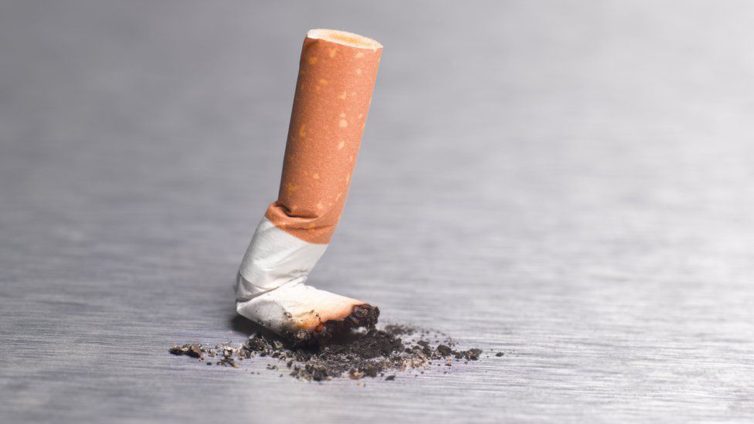New Zealand will ban the sale of tobacco to its next generation, in a bid to eventually phase out smoking.
Anyone born after 2008 will not be able to buy cigarettes or tobacco products in their lifetime, under a law expected to be enacted next year.
"We want to make sure young people never start smoking," Health Minister Dr Ayesha Verall said.
The move is part of a sweeping crackdown on smoking announced by New Zealand's health ministry on Thursday.
Doctors and other health experts in the country have welcomed the "world-leading" reforms which will reduce access to tobacco and restrict nicotine levels in cigarettes.
"It will help people quit or switch to less harmful products, and make it much less likely that young people get addicted to nicotine," said Prof Janet Hook from the University of Otago.
New Zealand is determined to achieve a national goal of reducing its national smoking rate to 5% by 2025, with the aim of eventually eliminating it altogether.
Currently, about 13% of New Zealand adults smoke, down from 18% about a decade ago. But the rate is much higher - about 31%- among the indigenous Maori population who also suffer a higher rate of disease and death.
New Zealand's health ministry says smoking causes one in four cancers and remains the leading cause of preventable death for its five million strong population. The industry has been the target of legislators for more than a decade now.
As part of the crackdown announced on Thursday, the government also introduced major tobacco controls, including significantly restricting where cigarettes can be sold to remove them from supermarkets and corner stores.
The number of shops authorised to sell cigarettes will be drastically reduced to under 500 from about 8,000 now, officials say.
In recent years, vaping - smoking e-cigarettes which produce a vapour that also delivers nicotine - has become far more popular among younger generations than cigarettes.
New Zealand health authorities warn however, that vaping is not harmless. Researchers have found hazardous, cancer-causing agents in e-cigarette liquids as well.
But in 2017 the country adopted vaping as a pathway to help smokers quit tobacco.
Latest Stories
-
NDC MPs back Supreme Court’s ruling on anti-LGBTQ bill petition
9 minutes -
Dr. Rejoice Foli receives Visionary Business Leader Award
12 minutes -
Economic missteps, corruption, unemployment and governance failures caused NPP’s crushing defeat – FDAG report reveals
15 minutes -
Supreme Court, EC need complete overhaul to safeguard our democracy – Benjamin Quarshie
17 minutes -
Dr. Elikplim Apetorgbor: Congratulatory message to Mahama
24 minutes -
Gabriel Kumi elected Board of the Chamber of Oil Marketing Companies
31 minutes -
Ga Mantse awards scholarships worth GHȼ100,000 to pupils in Ga communities
36 minutes -
NDC minority did not help the governance of the country – Afenyo-Markin
49 minutes -
NDC gov’t will struggle to fund social intervention programmes – Afenyo-Markin
55 minutes -
Man arrested for vandalising property at Parliament
57 minutes -
NDC’s internal struggle over who succeeds Mahama in 2028 has started – Afenyo-Markin claims
1 hour -
NDC’s mischievous campaign and propaganda will soon expose them – Afenyo-Markin
1 hour -
African banks to remain exposed to domestic, global operating environments risks – Fitch
1 hour -
Premier League: Wolves agree deal for Pereira to become new boss
1 hour -
Fitch expects outlook for sub-Saharan African sovereigns to be neutral in 2025
1 hour

